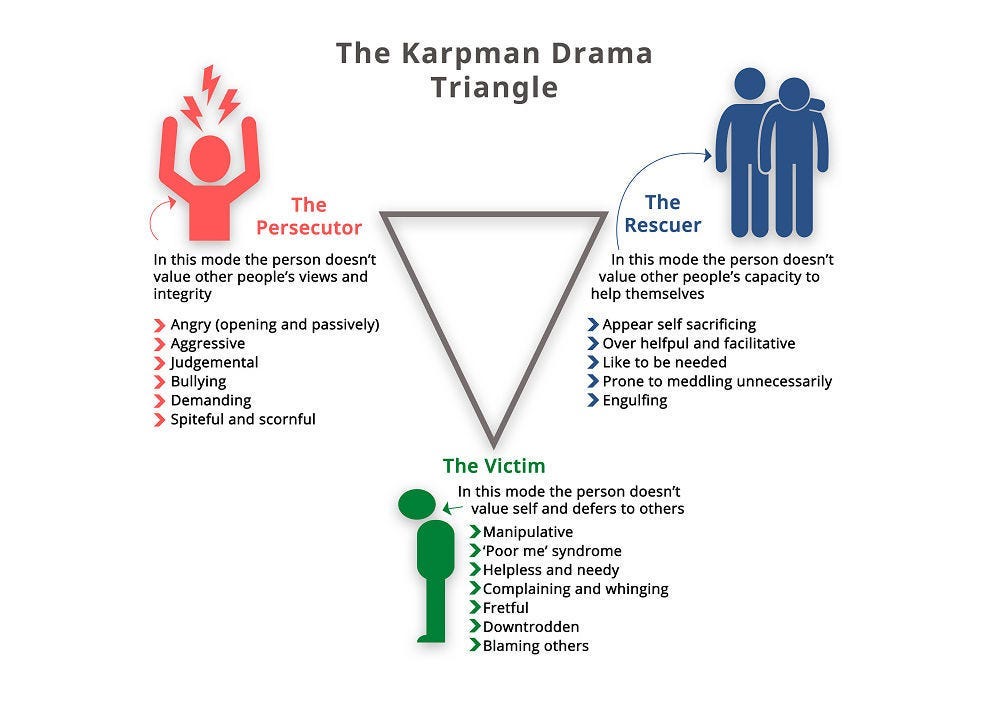Nobody Seeks a Codependent Church...Or Do They?
Recognizing and pursuing healthy, Christ-centered community
The wilderness was quieter than I expected. No towering trees, no rushing streams—just the raw, open space where the familiar melted away. In the stillness, I was alone with my thoughts, hopes, and the realization of the baggage I carried with me. This baggage, both mine and the church's, came into sharper focus in this unguarded place.
Navigating the Shift
In a church that once thrived on Christ-centered collaboration, there was a subtle shift. What began as a community built on mutual support and a shared love for Jesus became entangled with an overemphasis on roles, involvement, and human approval. Often, we don't notice this happening. Activities and programs that once connected us to Jesus start becoming ends in themselves.
It's easy to start measuring our value by how involved we are or by the approval we receive from others, rather than finding our worth in Christ. In her article “Boundaries Will Not Cure Codependency”, Rosaria Butterfield points out that codependency leads us to seek in others what we should find in Jesus.1 This shift toward reliance on human relationships instead of Christ can create a pattern of idolatry, where people or roles begin to overshadow our relationship with him. Like a fog creeping into our spiritual lives, this subtle idolatry distorts our focus and turns what should be a source of spiritual health into a burden.
Recognizing Codependent Patterns
The slide from a Christ-centered community to one that fosters codependency often starts innocently. It begins with the desire to involve people and make them feel part of something bigger. Yet, when this becomes a rush to 'plug people in,' the deeper purpose of spiritual growth and connection with Christ gets overlooked. Sometimes, it can feel like a backward version of the Hunger Games, with ministry leaders competing to place newcomers into various roles, without truly knowing them.
Within this dynamic, Stephen Karpman's Drama Triangle can subtly take hold.2 In the church, people might unconsciously take on roles like the Victim, Rescuer, or Persecutor:
Victim: Feels powerless and seeks validation or rescue from others, hoping to fill a void only Jesus can fill.
Rescuer: Tries to fix others' problems, creating dependency rather than pointing people to Christ.
Persecutor: Uses control or guilt to maintain authority, shifting the focus from Christ to human leadership.
When churches focus on quickly getting people involved, they may unintentionally encourage these roles. Instead of fostering a community that points to Christ, they can create environments where individuals seek their identity in their roles or the approval of others. Butterfield warns against this, stating that we form a codependent relationship—‘make an idol out of a friend’—when we ask that person to be more than they should.1 This reliance on people rather than Jesus distorts our understanding of true community.
The Pursuit of a Genuine Community
The wilderness offered surprising clarity. Seeking healthy Christian community means finding a place where relationships are firmly rooted in Christ and constantly point back to him. It's where grace and openness are practiced, collaboration takes precedence over control, and the Holy Spirit is allowed to lead. In these communities, our identity is anchored in Jesus, not in the roles we hold or the validation we receive.

When looking for this type of community, consider these qualities:
Grace and Transparency: In a healthy church, grace is extended to everyone—leaders, members, and newcomers alike. Mistakes are met with understanding, and transparency is a norm. Leaders openly communicate about how decisions are made and acknowledge their own need for growth, reinforcing that we all rely on God's grace.
Collaboration Over Control: In genuine community, everyone has a voice. There's a reliance on the Holy Spirit to guide the entire body, recognizing that each person has a role to play. Decisions are made thoughtfully and with prayer, valuing and nurturing the gifts and insights of the members.
A Focus on Jesus: The central mission of a healthy church is to point people to Jesus—His love, grace, and truth. When a church loses sight of this and focuses more on maintaining structures or pleasing leaders, it loses its true purpose.
Space for Rest and Growth: A healthy community understands the need for spiritual rest. It encourages a balance of service and rest, allowing members to step back when needed to nurture their relationship with Christ without pressure or guilt.
Accountability and Humility: Leaders in a healthy church practice humility. They welcome feedback, offer accountability at every level, and recognize that they are part of the body, not above it. They guide others to trust in Jesus rather than in human leadership.
Wholeness Through Gathering
The wilderness wasn’t a place I willingly chose, but it became the ground where I found my footing again. In its solitude I began to see the false altars I’d erected—those things I relied on for worth and direction instead of God. By tearing down these false altars in our hearts, we make room for the genuine relationships that Christ intended. Like Josiah in the Old Testament, who tore down the altars to false gods (2 Kings 23), we too are called to remove anything that takes God’s rightful place in our lives.
This act of dismantling idols doesn’t mean we have to reject a community or withdraw from church life. Instead, we clear the way for Jesus to become the center of our relationships. When we shift our focus back to him, we engage with our community from a place of freedom and wholeness.
Healthy Christian communities are inhabited by individuals who recognize their need for Jesus above all else. When we gather with this mindset, our communities become places of grace, growth, and mutual encouragement. We can support each other in our weaknesses, celebrate our victories in Christ, and and encourage each other to live out our faith boldly.
Living Out Loud in Community
So, if you’re in a community-shifting season, let it be an opportunity to reflect on your own heart.
Ask yourself:
Where is my heart anchored in this season?
Am I placing my hope and trust in Jesus, or am I looking for validation in roles, relationships, or the approval of others?What are the 'altars' in my life that need tearing down?
Are there areas where I’ve placed people, activities, or church involvement above my relationship with Christ?Am I serving from a place of knowing I am deeply loved by Jesus, allowing His love to flow through me? Reflect on whether your service comes as an overflow of the love and grace you've received from Christ, rather than striving to fill an internal emptiness.
Have you ever felt the pressure to find your worth in church involvement or others' approval? Share how shifting your focus back to Jesus has impacted your sense of identity and rest. What changes did you notice in how you connect with and serve your community?
As you embrace this shifting season, allow God to break down the idols in your life and build a heart that rests securely in Him.
When you gather with others, may you discover the freedom to worship and serve, compelled by God's deep well of love and a shared desire to know and trust him more.
Sources:
Butterfield, Rosaria. “Boundaries Will Not Cure Codependency.” Desiring God.
Karpman, Stephen. "Karpman Drama Triangle." 1968. Karpman Drama Triangle.









Kim, this speaks volumes to the risks of busyness and business in the church in America. I’m forwarding this to my pastor as food for thought to help prevent imbalance in our church community. Thanks for sharing from your deep work.
I cannot say enough good things about this! Yes! Yes! Yes!